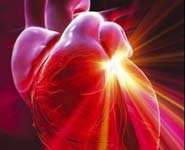New research could help in the treatment of cardiovascular disease

Cardiovascular disease can occur when vascular smooth muscle cells (VSMC) increase causing artery walls to thicken as the result of a build-up of fatty materials such as cholesterol. Researchers have demonstrated that the Wnt/β-catenin signaling pathway plays a key role in encouraging the growth of VSMC in vivo. These new findings could help in the treatment of cardiovascular disease.
The study by Sarah George, Professor of Cardiovascular Signalling and colleagues in the School of Clinical Sciences at the University of Bristol was funded by the British Heart Foundation and is published online in the Journal of the American Heart Association, Circulation Research.
Previous studies suggest the involvement of the Wnt/β-catenin signalling pathway in VSMC growth and the thickening of the inner layer of blood vessels has been merely ‘guilt by association’ and no direct proof has been available.
The researchers have found direct evidence that Wnt/β-catenin signalling pathway encourages an increase in VSMC in vivo. In addition, they have demonstrated for the first time both in vitro and in vivo that the protein, Wnt4, is specifically up-regulated by growth factors and helps VSMC growth and activation of the canonical Wnt/β-catenin pathway through the protein, Frizzled receptor.
At the level of basic science, the findings provide a greater understanding of the control of VSMC increase by growth factors and identify Frizzled-1 as the predominant Wnt4 receptor in this cell type. Additionally, the researchers have revealed Wnt4 and Frizzled-1 as potential targets for new therapeutics to slow down VSMC growth in order to delay the thickening of the inner layer of blood vessels and thereby hardening of the arteries (atherosclerosis) and the reoccurance of the narrowing of a blood vessel (restenosis).
Professor George said: “Understanding the mechanisms underlying the increase in VSMC may aid the development of new therapeutic approaches to prevent artery walls thickening and help with cardiovascular disease.”
Cardiovascular disease, including heart attack and stroke is the number one killer in the UK and western world. It is caused by the pathology known as atherosclerosis and leads to blockage of arteries. Patients with arterial blockages are treated with vein grafts and implantation of stents. Unfortunately these treatments suffer high failure rates (30-50 per cent) within ten years leading to further clinical burden. Treatment failure is caused by thickening of the inner layer (intima) of blood vessel as a result of an increase in the resident cells (VSMCs) in the blood vessel wall.
More information: Wnt4/β-Catenin Signaling Induces VSMC Proliferation and Is Associated With Intimal Thickening, Aikaterini Tsaousi, et al. Circulation Research, published online December 30, 2010.


















